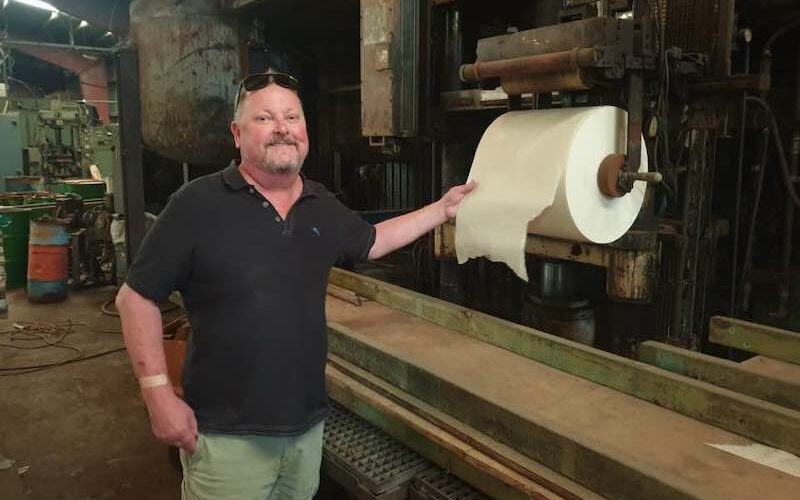The credibility of witnesses was tested severely in ASIC’s case against bank victim advocate Geoff Shannon yesterday, and case evidence was brought to an abrupt close amid talk of perjury. Lisa-Jane Roberts reports from Southport.
The cross-examination of ASIC’s star witness in the case against bank victims advocate Geoff Shannon concluded yesterday at Southport Court on the Gold Coast, and the trial was adjourned until 22 August 2023, when both parties will present their final submissions to the court.
The Australian Securities & Investments Commission (ASIC) claims Shannon was acting as a director while also a bankrupt. Shannon claims he was not acting as a director, but was working as an advocate for the brand Unhappy Banking.
ASIC’s key witness Natasha Keys was formerly in a romantic relationship with Shannon while working with him at Business & Personal Solutions (BAPS). She was formerly a director of BAPS debt mediation service.
In his questioning of Keys on Monday, Saul Holt KC, barrister for the defence, had asked Ms Keys to provide the settlement deed and any emails related to the settlement of her debt with the Commonwealth Bank of Australia (CBA).
Commbank pays Keys
The deed, tendered to the Court yesterday, confirmed that the settlement had taken place in November 2018, not June 2018 as previously alleged, and that the bank, to whom Ms Keys owed $272,000, had forgiven that debt and paid the witness approximately $320,000 on top of that as part of the settlement.
The court heard that the settlement had involved email communications and meetings between Keys and Ms Jacqueline Shrader, who was general counsel for regulatory projects at the CBA at the time, and Holt once again brought it to the court’s attention that the chief executive of the CBA, Matt Comyn, had been directly involved in discussions – in person and over the phone – with Ms Keys regarding the settlement.
Referring to a statement by Keys on Monday that “there was [sic] no numbers talked about in my meeting with Matt Comyn,” Holt showed the court an email from Keys to Schrader, which read, “Hi Jacqui. Just quickly checked the amount stated in the deed, and it is less than what Matt referenced to [sic] in the meeting we had.”
Perjury warning
This contrast between evidence previously given to the court by Keys and evidence brought to the court by the defence, became a recurring theme throughout the morning and culminated in Holt making a reference to perjury, at which point the presiding magistrate paused proceedings to issue a warning to the witness and explain that she was entitled to claim privilege against self-incrimination.
In what remained of her cross-examination, Ms Keys claimed privilege 30 times.
Mr Nathan Miller, the ASIC investigator who was allocated the case that led to the present trial, was then called to the stand and sworn in.
During Miller’s evidence-in-chief, the court heard a recording of an interview on December 18 2019, in which Shannon voluntarily provided a statement to Miller as part of the investigation. In that interview, Shannon stated categorically that during his bankruptcy, he had not operated as a director or shadow director or contravened any laws..
He also disclosed to ASIC that he and Keys had been involved in a romantic relationship, that Keys had had an affair with and colluded with Simon Graystone from the NAB, had met with the CEO of the CBA, had provided senior journalists Ben Butler and Adele Ferguson with malicious information on Shannon, and had an agenda to hurt him.
He went on to describe Keys as “unreliable, a compulsive liar that is prepared to twist facts if she does not get her way,” and as having “lost her moral compass.”
Keys drops 16,000 Shannon email trove to ASIC
During the cross-examination of Miller, the investigator confirmed that it had been Keys who approached ASIC with information in May 2019, later handing the regulatory body a USB with over 16,000 documents on it, which was uploaded to ASIC’s evidence system.
The defence questioned Miller on whether he, as an investigator, had read those 16,000 documents “to ensure that they were relevant, or not relevant, or disclosable, or not disclosable, or that they gave rise to different lines of inquiry”. Miller said that he’d have to check but that he had reviewed the documents and “put the documents in the brief of evidence that [were] relevant to the case.”
Holt then asked Miller to confirm that as an investigator, his job requires him to keep an open mind and investigate thoroughly and diligently, testing and interrogating information rather than accepting it at face value. Miller replied that it did.
“Hi Babe” Case: Commbank boss Matt Comyn revealed in payments to ASIC star witness
The defence then suggested that despite Shannon’s allegations in his statement, Miller had not questioned the information that Keys had provided or doubted her credibility, had not investigated the alleged leaks of information to the media, had not sought to ascertain if Keys had an ulterior motive in providing the information to ASIC, had not expressed concern about or investigated the claims that Keys had met with the CEO of the CBA, and had not deemed it relevant that Keys had attempted to get a solicitor to act on a speculative basis for her because she had information on Shannon in which the CBA would be interested.
Nor, the defence continued, had he bothered to speak with the trustee who had been responsible for the day-to-day administration of Shannon’s estate in bankruptcy, identified and interviewed key shareholders of BAPS, questioned Keys about her relationships with Shannon and Graystone, or in short, taken into account any of the “red flags” that Mr Shannon had raised in his statement.
Holt then suggested that Miller had taken “a particularly one-eyed view to [the] investigation,” cherry-picking the documents to be disclosed and framing the case around the erroneous premise that Shannon had held the corporate key for BAPS, which, as clearly evidenced in documents among the 16,000 contained on the USB supplied to the regulator, he had not.
Faced with these allegations, Miller held firm, repeatedly stating that he had conducted his investigation adequately.
Barrister for the prosecution, Grace Devereaux, briefly re-examined Miller, asking him if anyone else had approached ASIC regarding Mr Shannon, to which Miller replied, “not that I recall, sorry.”
As His Honour Magistrate Bamberry was heard to remark in a closing discussion with the barristers about costs once the witnesses had been excused, “this isn’t your average trial in the Magistrate’s Court.”
Final submissions have been scheduled for 22 August 2023.
Sleeping with the Enemy: ASIC’s case against National Australia Bank’s adversary hits a sex snag
Lisa-Jane is a freelance writer and academic from Sydney. She is currently writing her doctoral thesis on narrative ethics at the University of Sydney and regularly pens articles, blog posts and opinion pieces for her clients.

